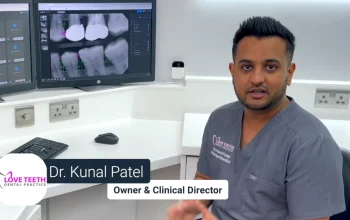A dental implant is a type of replacement tooth. Once the implant has been placed, a restoration can be placed on top of it, such as a dental crown, bridge, or dentures. The replacement tooth will be designed to blend in with the rest of your teeth. It may require more than one procedure to replace multiple missing teeth. Once the implant is in place, it is difficult to distinguish it from the rest of your teeth.
A dental implant is made of titanium, the strongest metal in the world. This makes it the best replacement for missing teeth because it doesn’t rely on the strength of nearby teeth. As a result, dental implants are among the most durable forms of dental restoration available. These benefits of dental implants make them an ideal alternative to natural teeth for those who want to restore their smile. Listed below are some of the other benefits of dental implants.
Implant-supported dentures can cause complications. The main concern with dentures is that they interfere with the ability to chew and swallow certain foods. This can compromise digestion and nutrition. A dental implant, however, can dramatically improve a person’s food choices. Compared to traditional tooth-supported bridges, dental implants can last for more than 30 years. It also does not require the grinding of healthy teeth that were previously occupied by the bridge.
In addition to repairing the damage caused by a missing tooth, dental implants will restore chewing functions and improve nutrition. Another benefit of dental implants is that they are permanently affixed on posts, preventing them from moving around. In addition, dental implants don’t damage healthy teeth nearby, making them an excellent option for replacing missing teeth. These benefits are just the tip of the iceberg when it comes to dental implants. So, what are the benefits of dental implants?
The main advantage of implant replacement is that it lasts much longer than bridges or dentures. With proper care, dental implants can even last for a lifetime. Implants can also improve the condition of your jawbone, trigger bone regeneration and help protect against gum disease and tooth decay. They can also prevent surrounding teeth from shifting. They also prevent your mouth from absorbing bacteria. That means less chance of infection. That’s why dental implants are considered the best option when replacing missing teeth.
Another benefit of dental implant-supported dentures is that they require much less maintenance than conventional dentures. You don’t need to soak them like you would with traditional dentures. This means less sensitivity and discomfort, which is another important benefit. Also, unlike dentures, dental implants don’t cause any kind of damage to your gums or mouth. The procedure is also permanent, which is another plus. This means that you won’t have to worry about the implant falling out or causing you problems down the road.
Dental implant restorations also offer more bite functionality than traditional dental solutions. A biocompatible titanium post establishes a connection with your jaw bone, essentially acting as an artificial root. This connection gives you the ability to chew and eat more food and maintain a healthy jaw. It also prevents bone loss in the jaw. Therefore, dental implant restorations are the ideal solution for missing teeth. It’s important to choose a dentist who has a proven track record of success in this field of dentistry.




